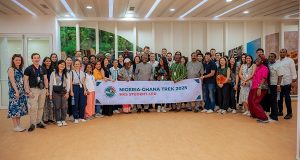……..by Ben Ndubuwa…….
The Rural Electrification Agency (REA) has paid $18 million to the private sector operators in order to expand access to electricity. REA said it used InfraCredit’s guarantees to provide electricity access to over 7.8 million people. According to REA over $350 million has been paid to private sectors globally to expand electricity access, with Nigeria contributing more than 5 percent of the global expenditure on access to electricity.
Speaking at the recent concluded Nigeria Energy Leadership summit in Lagos, the Managing Director of REA. Abba Aliyu said that there are significant challenges in global electricity access, particularly for the 685 million people still without power. He emphasizes that off-grid systems remain the only feasible solution for providing electricity to this population. “There is no any other means to cater for these 685 million people without access other than the off-grid system. It is also found out that the impact of microeconomic factors affects the delivery of electricity access globally. So it’s not only in Nigeria. Globally, the macroeconomic factors, be it inflation, be it cost of financing, slow down this electricity penetration” he said.
The impact of these factors has led to an increase in mergers and acquisitions within the energy sector, as private developers face difficulties in securing financing. To strengthen their ability to attract funds, companies are consolidating resources by acquiring smaller firms. This trend is especially prevalent in the global context, although it is not yet widely observed in Nigeria.
In Nigeria, developers are increasingly turning to innovative financing mechanisms, such as guarantees and off-balance sheet financing, to overcome funding challenges. InfraCredit, backed by the Nigerian Sovereign Investment Authority, has played a key role in supporting local developers.
He pointed out that there is the shortage of skilled manpower in the sector, particularly in Sub-Saharan Africa. This shortage has hindered the deployment of microgrids and small-scale renewable energy solutions, such as mini hydroelectric dams, in the region. Recognizing this gap, the Nigerian government has established a specialized agency to address the skills deficit, but the sector still faces significant challenges in building a skilled workforce.
Renewable energy solutions, particularly solar, have proven to be cost-effective alternatives to diesel in public institutions. For example, a hybrid mini-grid deployed at Alessi Kweimei University saved the institution $630 million in five years, while also reducing its diesel consumption. Such projects highlight the potential of renewable energy to lower operational costs and improve performance in educational and healthcare facilities.
Despite these advances, the report warns that the world is at risk of failing to achieve universal electricity access by 2030. To mitigate this risk, it recommends increased public and private investment, alongside result-based financing frameworks, to accelerate progress and ensure energy access for all.
 Financial Energy Review
Financial Energy Review





